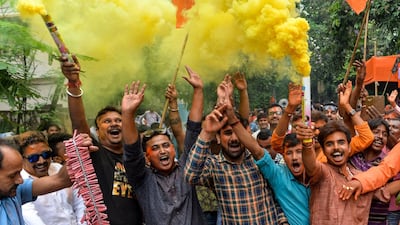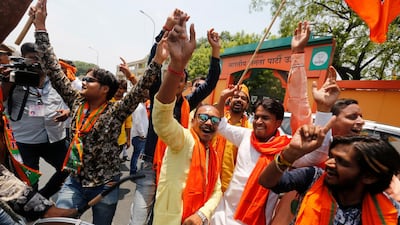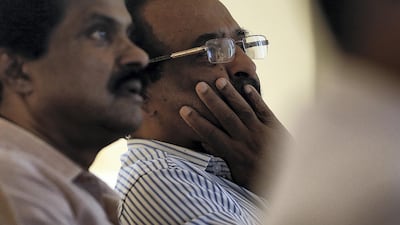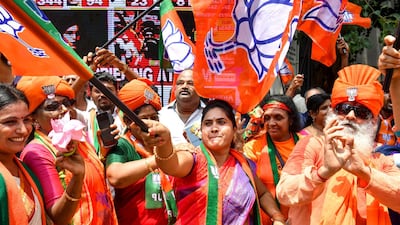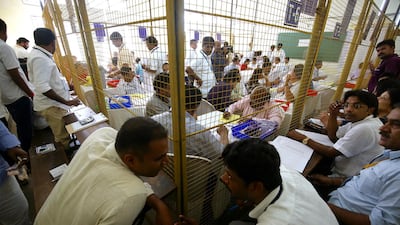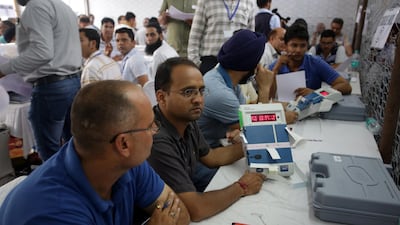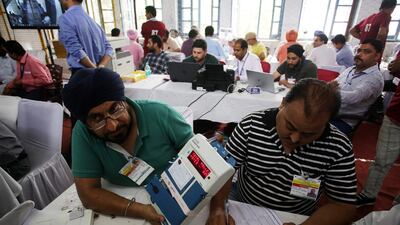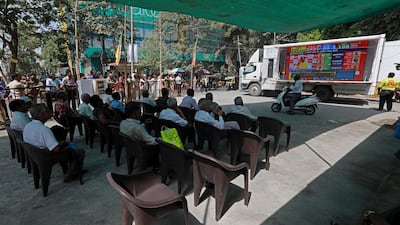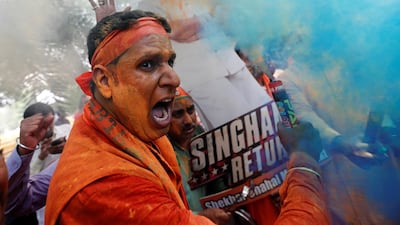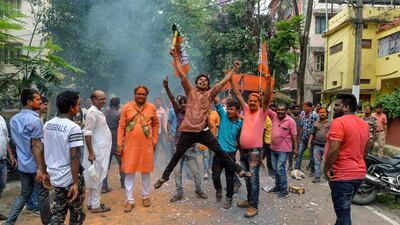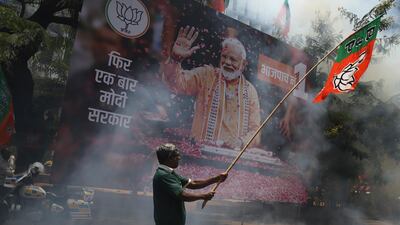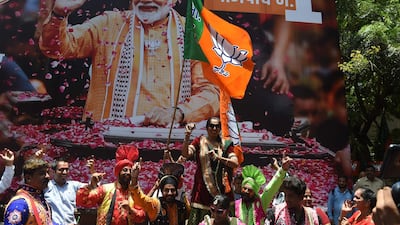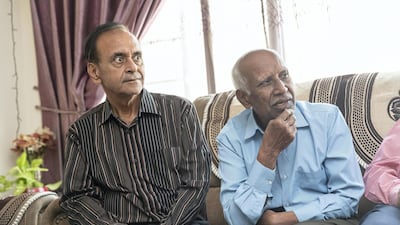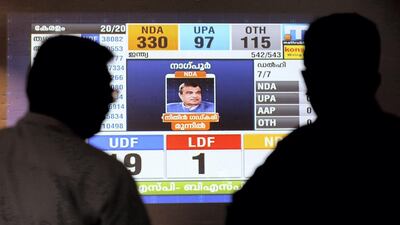The Indian Supreme Court's decision to scrap electoral bonds has refocused attention on the controversial financing of polls in the world's largest democracy, expected to be the most expensive when general elections are held in April and May this year.
Political parties and candidates are set to spend more than 1.2 trillion rupees ($14.4 billion) in the elections, said N Bhaskara Rao, chairman of Centre for Media Studies in New Delhi, which tracks political expenditure figures.
This estimate would make the elections the most expensive.
About $14.4 billion – the lower end of Mr Rao's prediction – was spent during the US presidential and congressional races in 2020, according to OpenSecrets.org, which also tracks election spending.
Introduced by Prime Minister Narendra Modi's government in 2017, the electoral bonds system allowed donors, including corporations, to buy the instruments from state-controlled banks to fund political parties without their names being made public.
It was challenged by opposition members and civil society groups who argued the system facilitated corruption and money laundering, and misled the public about who funded political parties.
But despite the Supreme Court deeming the system unconstitutional, experts say this spring's general elections in India are likely to involve a record amount of election spending – including vast amounts of bribes and “dirty money”.
“Money matters in Indian elections. Unaccounted cash plays an important role in getting votes,” said Niranjan Sahoo, a senior fellow at the Observer Research Foundation, a New Delhi-based think tank.
Most expensive ever?
Mr Rao's estimate would also mean that the 2024 India elections are set to cost more than double that of India's last general elections in 2019, when candidates spent about 600 billion rupees ($7.2 billion), according to a report from Centre for Media Studies.
The amount this time equates to about 1,240 rupees ($14.95) spent for each of India's 968 million eligible voters, or nearly 2.2 billion rupees for each parliamentary constituency.
Mr Rao told The National that the elections would cost more due to the larger electorate, and attributed the rise in spending to increased costs from social media and publicity campaigns as well as travel costs.
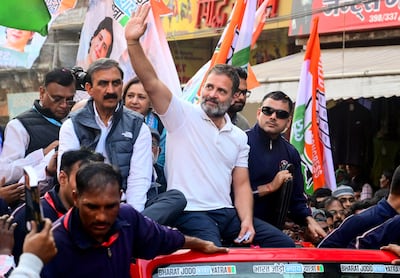
Dirty money
These figures are estimates due to the difficulties of tracing unofficial payments that are widespread in Indian election campaigns, including illegal payments to voters in return for their support.
India's Election Commission has set an official spending limit for candidates – which varies between 7.5 million and 9.5 million rupees per candidate, depending on the state where they are standing for election.
The federal government accounts for around 10 per cent of the predicted total expenditure to hold the elections. This is according to the last available figures – for the 2014 election, when it spent 38.70 billion rupees ($466 million).
The rest is spent by political parties and candidates, and their legal and accounted expenses represent only a small fraction of the estimated real amount.
According to reports, many candidates give out cash and other gifts – ranging from bicycles to phones and even goats – as part of their electoral campaigns.
“The use of black money has become rampant. The Election Commission’s limit on candidates’ spending is not effective and laws are not properly enforced,” said Mr Sahoo.
The amount of informal money spent is so vast that it may even affect India's economy and boost growth, said Madan Sabnavis, chief economist at the Bank of Baroda.
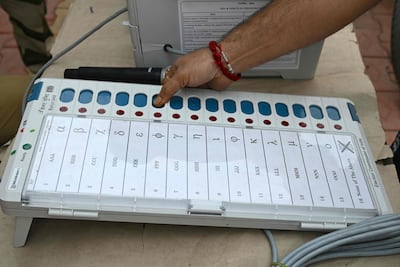
BJP's war chest
Although the ruling Bharatiya Janata Party was the main beneficiary of the electoral bonds scheme, it also has the strongest alternative sources of political funding and remains the richest party going into the election.
The BJP received 52.7 billion rupees from a total of 92 billion rupees ($1.1 billion), or 57 per cent of the value of electoral bonds sold from 2018 to 2022, according to Election Commission data.
The main opposition, the Congress Party, received 9.6 billion rupees, or 10 per cent, in the same period.
In the official figures for political parties in the last general election in 2019, the BJP spent about 11.4 billion rupees, close to double the amount spent by Congress, according to the Association for Democratic Reforms, an NGO which monitors elections in India.
The party also had by far the highest election war chest in 2019. The Association for Democratic Reforms reported that the BJP collected 45 billion rupees, which was 63.34 per cent of the total funds collected, compared to 16 billion rupees collected by Congress (18.22 per cent).
The disparity led Congress leader Rahul Gandhi to accuse the BJP of making electoral bonds “a medium for taking bribes and commission” in the aftermath of the Supreme Court verdict.

But while some have praised the ruling, others have warned that unaccounted cash donations will still play a large role in the election.
“With the Supreme Court scrapping the electoral bond, which was lacking transparency, unaccounted cash donations will come back in vigour as a key mode of political funding to parties,” said Mr Sahoo.
Former chief election commissioner of India SY Quraishi, said the “purity” of the election was at risk without limits on political parties' spending and a reduction in dirty money.
“Unless these measures are taken, the purity of the election and level playing field will remain disturbed,” he told The National.
